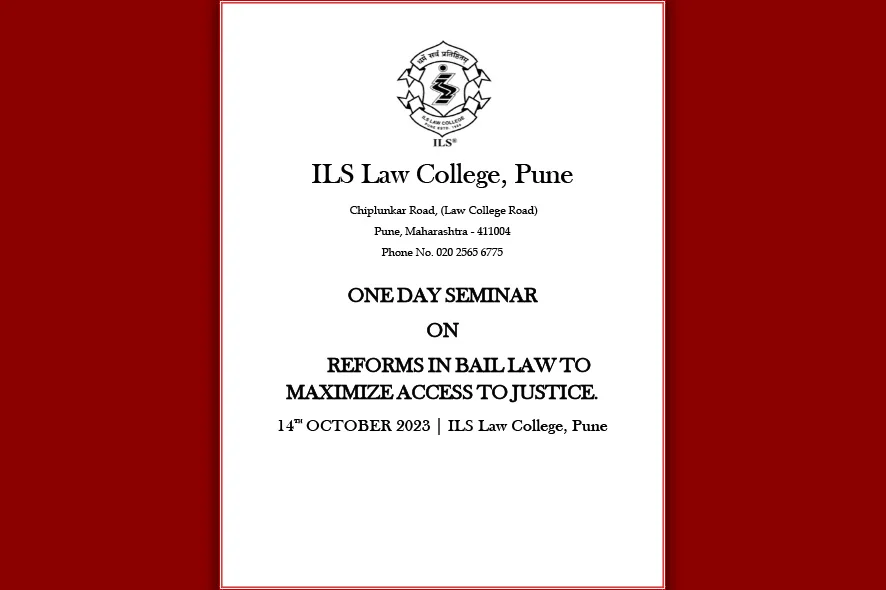Concept Note:
The Indian Constitution envisages an affirmative use of law for bringing about a profound social transformation. The Constitution contemplates the use of law as an instrument of social engineering. This “Law” is itself a resource. Unless this resource is equitably accessible, i.e., unless people can use law successfully for securing their entitlements under the various laws, the social engineering is not likely to be successful. It is a fact that justice is denied to many people because of their inability to activise the law on their behalf. Access to law becomes crucial in context of Criminal Justice system; particularly when a larger number of the accused come from a disadvantaged section of the society. A 2021 census demonstrates that those from communities considered SC formed 22.8 % of undertrials and 21.7 % of the convicts respectively as compared to their share of 16.6% in the population as per the 2011 census.
Criminal law is one of the most sensitive areas which can exercise unalterable impact on the lives of people. The criminal justice system aims to protect the right to personal liberty against invasion by others; to protect the weak against the strong, law abiding against lawless, peaceful against the violent. Within the legal framework there are several provisions which offer adequate safeguards to the accused against intrusion on personal liberty. Law relating to Bail is one such law which provides for securing bail to the accused under certain conditions. The law of bail is premised on the principle of balance considerations of personal liberty with public interest. However, it is observed that the bail law and process relating bail creates significant constraints on the accused and consequently leaves the accused in a state of despair. Access is curtailed due to several reasons such as ambiguity in law, poverty, unreasonable bail conditions, lack of awareness about the law etc.
The Apex Court in 2022 remarked that there is an urgent need to reform the law relating to bail. Further it is observed that the Courts in India have applied inconsistent standards while granting bail. There is lack of uniformity and hence the judge’s sole discretion becomes the controlling factor to grant or deny bail. Given the situation the Bail system as we see it administered today in the Criminal Courts is extremely unsatisfactory and needs drastic change.
This seminar attempts to examine the issues around the law relating to bail and alongside will try to propose reforms in bail law to maximize access to justice. The Seminar will also analyze judicial precedents to discern whether there is uniformity in the parameters on which bail is granted or denied to the accused.
Who can Attend?
Academicians, legal practitioners, research scholars, law students, activists and others may participate in the Seminar.
Participants will receive a E-Certificate of participation.
Registration Fee:
For ILS Students: Rs. 236/- (Rs.200 + 18% GST)
For Non-ILS Students & Professionals: Rs. 590/- (Rs. 500 + 18% GST)
Payment mode: Online. Debit Cards payments are not acceptable.
Last Date for Registration: 13/10/2023
Faculty Convener: Dr. Shaila Daware, HOD, Post-Graduate Department in Law
Contact: llmdepartment@ilslaw.in
Click Here for the Brochure.
Registration and Payment Link: Available here







Good